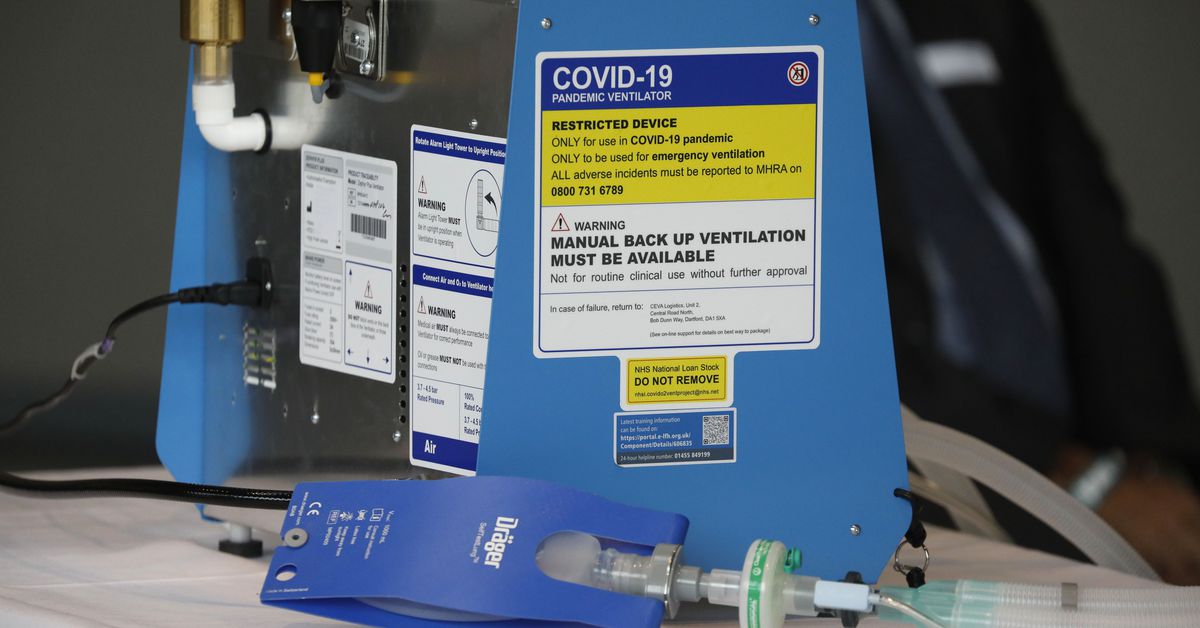
An advocacy group is urging lawmakers to make sure hospitals can repair their own equipment — citing a survey of over 200 medical professionals. The US Public Interest Research Group (PIRG) has released a new report on how “right-to-repair” rules affect medical professionals, especially during the coronavirus pandemic. It concludes that a lack of clear rules makes it more difficult to fix vital medical devices at a sustainable cost, even when many manufacturers aren’t acting maliciously.
The PIRG report surveyed 222 biomedical professionals, many of whom work at hospitals. Nearly half said they’d been denied access to necessary repair parts and information during the pandemic. And nearly all said that removing restrictions on repairs was “critical” or “very important” to their work.
According to the survey, manufacturers frequently restrict third-party repairs. Around 92 percent of the respondents said they’d been denied service information about equipment like ventilators and defibrillators, with around half of those people saying it happened “somewhat frequently.” Around 89 percent said manufacturers had refused to sell spare parts.
Since the pandemic hit the US in March, around 29 percent of respondents who work with ventilators say they have devices they can’t use because they lack parts or information, and overall, about 49 percent of survey members said they’d been denied access to “critical repair information, parts, or service keys” for some kind of medical equipment. Many professionals reported problems like having to find service manuals unofficially online, and some manufacturers have issued takedown notices to sites that host them.
49 percent of survey members said they’d been denied access to “critical” information or parts
There are several benefits to third-party repairs. Parts and maintenance fees can be cheaper than what the manufacturer would charge. And perhaps most vitally, hospitals can quickly fix equipment on their own or with the help of an independent technician, instead of waiting for an official company expert. (With the coronavirus limiting travel, that’s even more important now.) Manufacturers can adopt best practices that include sharing product manuals and making training courses accessible and affordable, as well as offering broad access to spare parts. But the survey suggests that’s often not happening.
Manufacturers can offer some reasonable arguments for setting tough standards on technicians: having strong certification and training programs, for instance, reduces the chance of a bad repair job. But a 2018 Food and Drug Administration report found that third-party repairs were largely safe and effective — and right now, they’re vital. PIRG is calling on the FDA to make manufacturers provide service information and the Federal Trade Commission to monitor whether certain restrictions count as anti-competitive behavior. In May, over 300 hospital repair experts also signed a letter to lawmakers asking for right-to-repair rules.
Several states have proposed laws that would make manufacturers remove barriers to third-party repairs, and Democratic presidential candidates Elizabeth Warren and Bernie Sanders also supported right-to-repair rules during their campaigns. (Copyright law can make repairs more difficult, too, but exemptions have mitigated the problem.) But most of them haven’t gotten far, with the exception of a promising bill in Massachusetts. Much of the conversation has also focused on vehicle and home electronics. But the pandemic has made hospitals a much bigger part of many people’s lives — and that’s brought a long-standing issue to the forefront.
